Physical Address
304 North Cardinal St.
Dorchester Center, MA 02124
Physical Address
304 North Cardinal St.
Dorchester Center, MA 02124
High blood pressure is a common health concern, but certain foods can help manage and lower it effectively. Here’s a list of 10 foods that are beneficial for maintaining healthy blood pressure levels. Incorporating these into your diet can support overall cardiovascular health and may contribute to better blood pressure management.
More than 1 billion individuals worldwide suffer from high blood pressure, which is defined as having a systolic blood pressure (SBP) of 130 mm Hg or more, a diastolic blood pressure (DBP) above 80 mm Hg, or both.
Lifestyle adjustments and dietary changes can help reduce blood pressure levels and lower the risk of heart disease. Doctors may also prescribe medications, including angiotensin-converting enzyme (ACE) inhibitors, to help manage blood pressure.
Including foods that are high in potassium and magnesium in your diet can aid in lowering blood pressure.
Incorporating these foods into a balanced diet can significantly contribute to managing high blood pressure. Pairing them with a lifestyle that includes regular physical activity and maintaining a healthy weight will further enhance their benefits. Always consult with a healthcare provider for personalized dietary advice.
Sure! Here’s a more detailed look at each of the ten best foods for managing high blood pressure:
Sure! Here’s a more detailed look at each of the ten best foods for managing high blood pressure:
2.Berries: Blueberries, strawberries, and raspberries are rich in antioxidants known as flavonoids. These compounds have been linked to improved blood vessel function and lower blood pressure. Regular consumption of berries may also enhance endothelial function, which is vital for maintaining blood vessel health. Enjoy berries fresh, in smoothies, or as a topping for oatmeal or yogurt to reap their benefits while satisfying your sweet tooth.
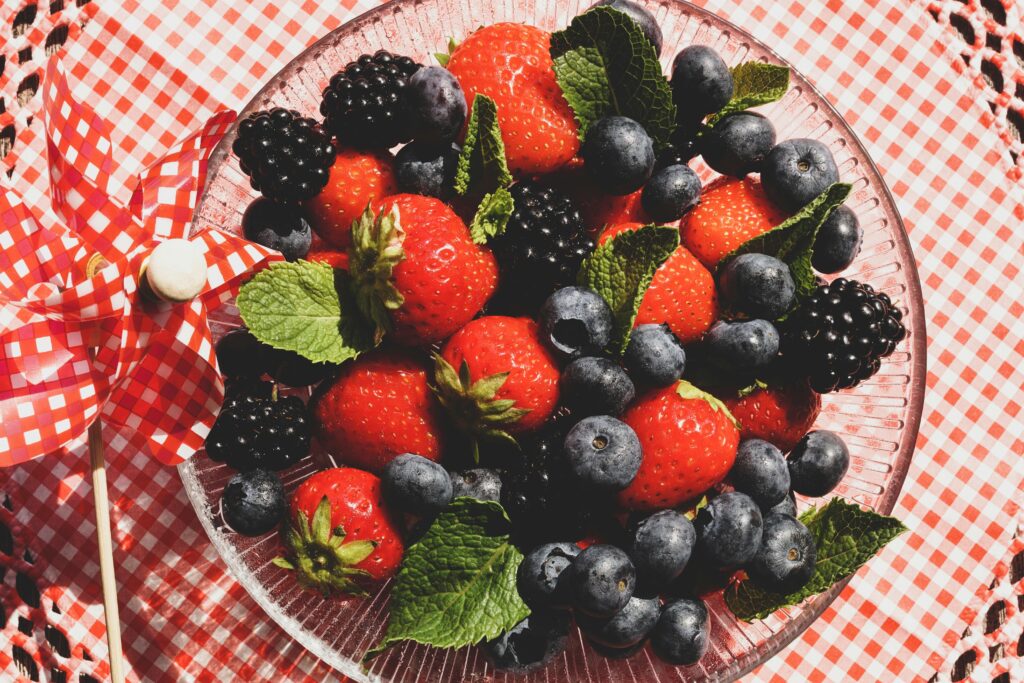
3.Beets: Beets are high in nitrates, which the body converts to nitric oxide, a compound that helps dilate blood vessels and improve blood flow. This effect can lead to lower blood pressure. Studies have shown that drinking beet juice can lead to significant reductions in blood pressure, particularly in individuals with hypertension. Roasting or steaming beets, or adding them to salads, can be a delicious way to incorporate this nutrient-rich vegetable into your diet.
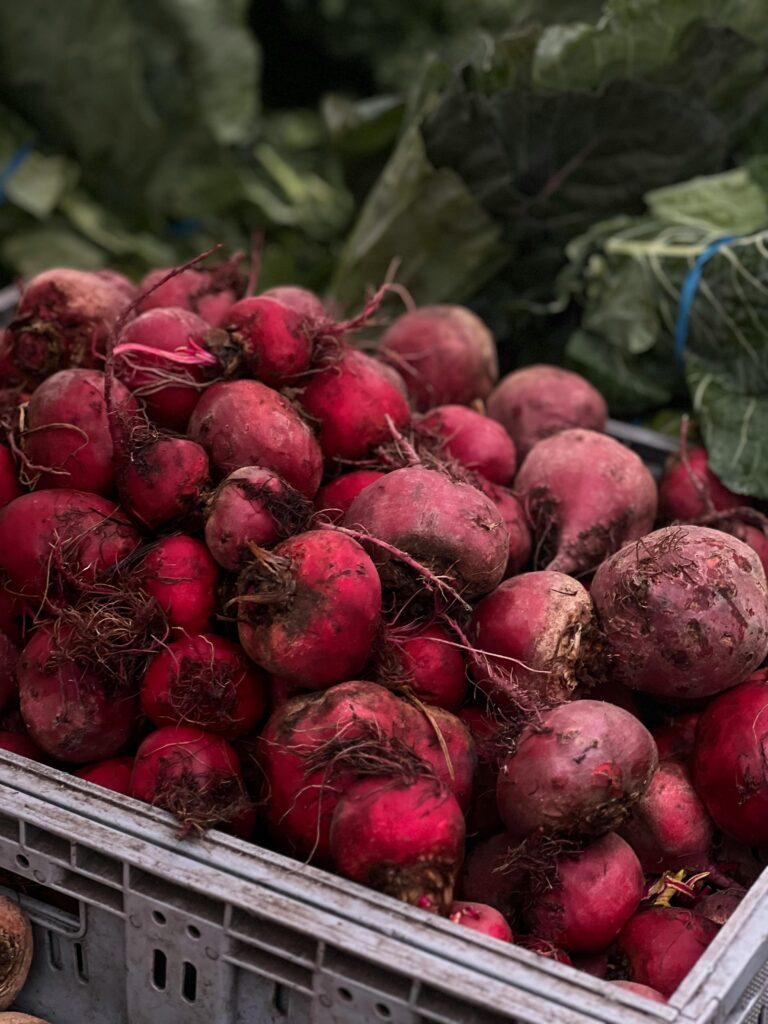
4.Oats: Oats are a fantastic source of soluble fiber, particularly beta-glucan, which helps lower cholesterol levels and may have a beneficial effect on blood pressure. They have a low glycemic index, meaning they release energy slowly and help maintain stable blood sugar levels. Starting your day with a bowl of oatmeal topped with fruits and nuts can set a healthy tone for the day and support overall heart health.
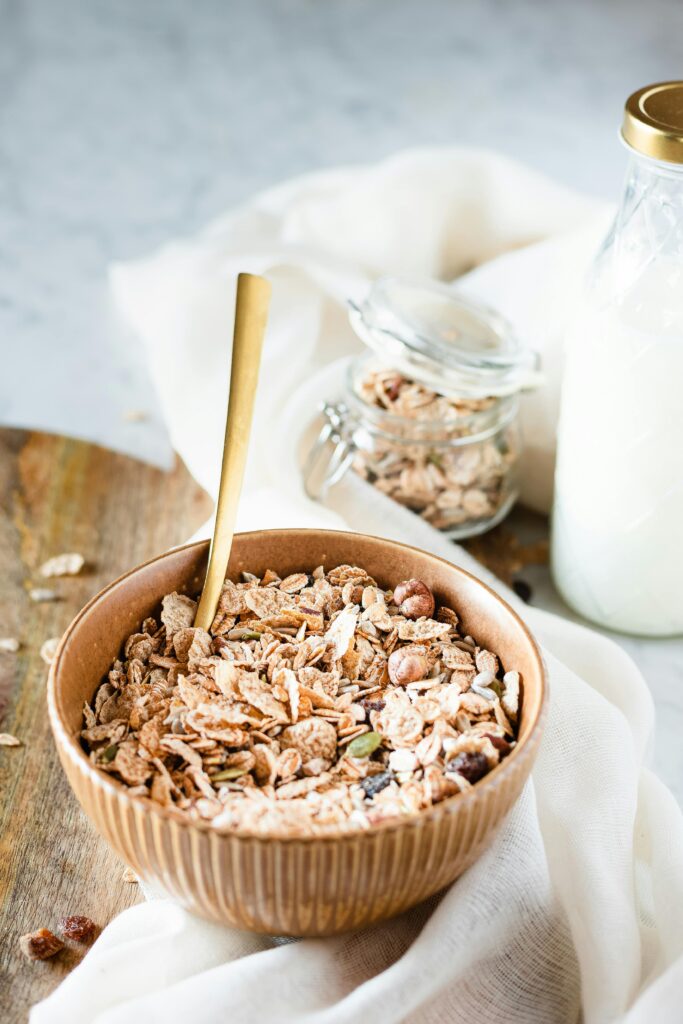
5.Bananas: Known for their convenience and natural sweetness, bananas are one of the best sources of potassium. This essential mineral helps balance sodium levels in the body, which is important for controlling blood pressure. Bananas are also high in fiber, which aids digestion and contributes to overall cardiovascular health. They can be eaten on their own, added to smoothies, or sliced onto cereals and yogurts for a nutritious boost.
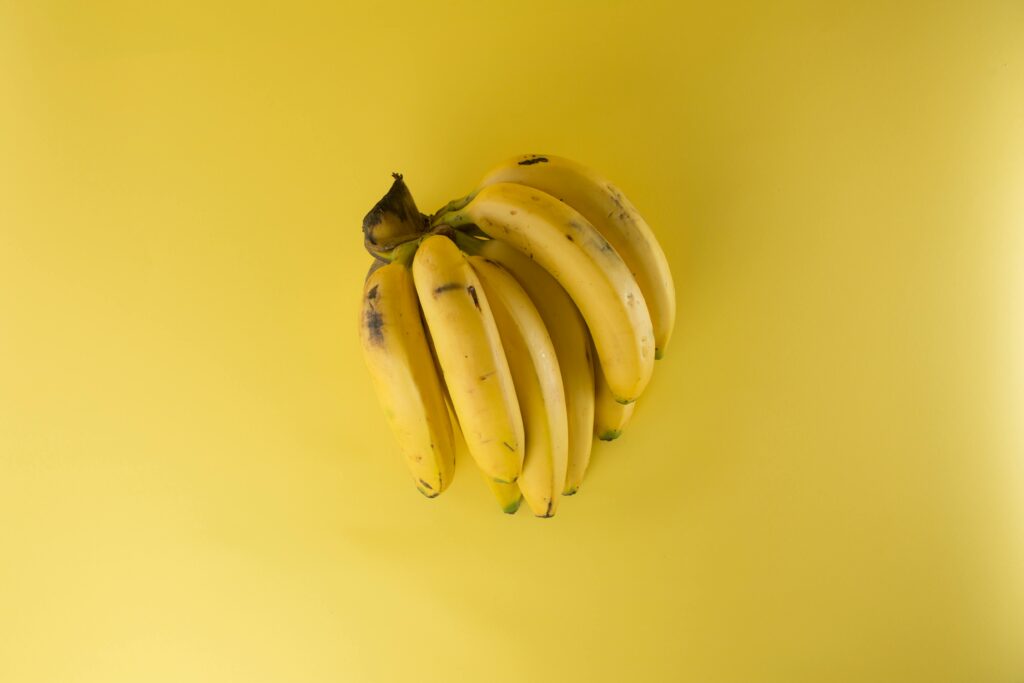
6.Fatty Fish: Fatty fish like salmon, mackerel, and sardines are rich in omega-3 fatty acids, which are known for their anti-inflammatory properties. Omega-3s can help lower blood pressure, reduce triglycerides, and improve overall heart health. Regular consumption of fatty fish has been associated with a lower risk of heart disease. Aim to include fatty fish in your diet at least twice a week; try grilling, baking, or adding them to salads for a delicious meal.
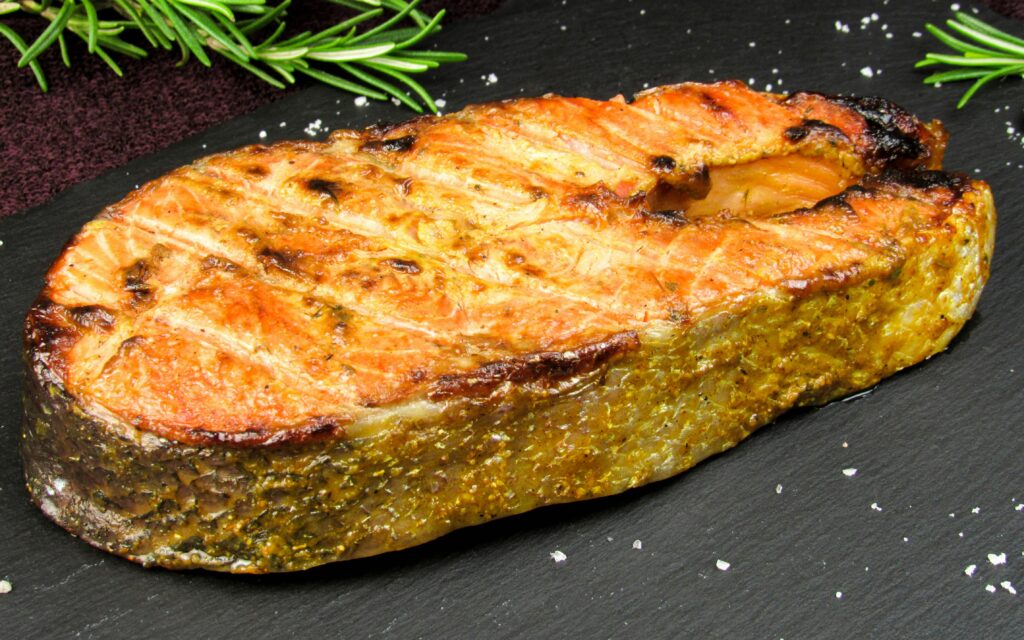
7.Garlic: Garlic contains a compound called allicin, which has been shown to help relax blood vessels and improve circulation. Regularly incorporating garlic into your meals can enhance flavor while providing health benefits. Whether added to soups, stir-fries, or roasted dishes, garlic can be both a culinary delight and a powerful ally in maintaining healthy blood pressure levels.
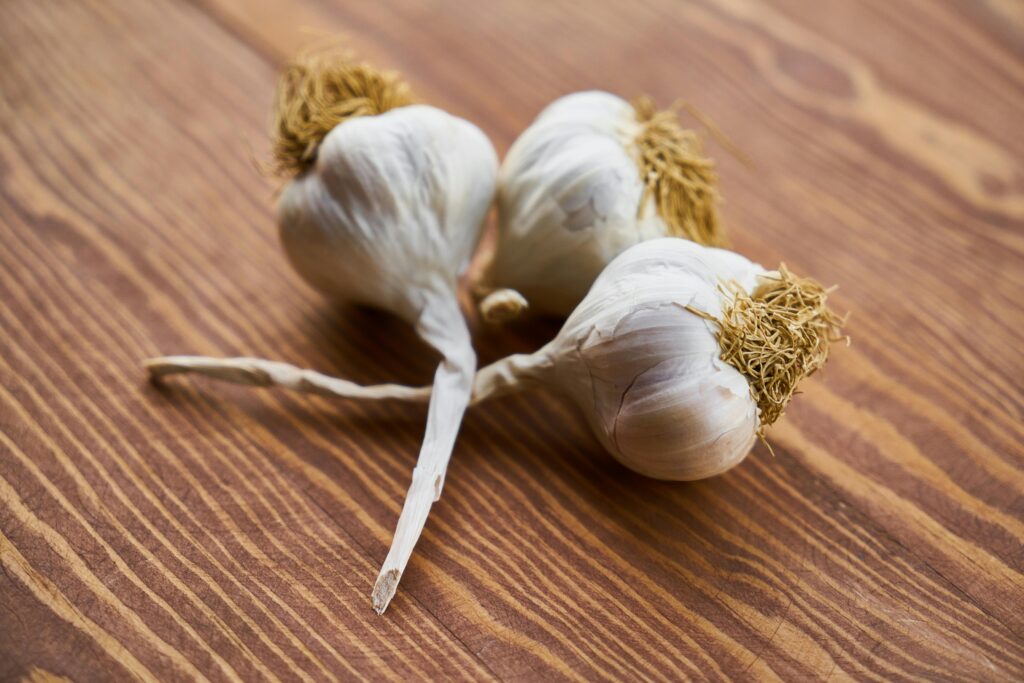
8.Nuts and Seeds: Almonds, walnuts, and flaxseeds are nutrient-dense foods high in healthy fats, fiber, and magnesium. Magnesium plays a key role in regulating blood pressure, while healthy fats can help lower bad cholesterol levels. Snacking on a small handful of nuts or adding them to salads or oatmeal can provide a satisfying crunch and promote heart health. Just remember to watch portion sizes, as nuts are calorie-dense.
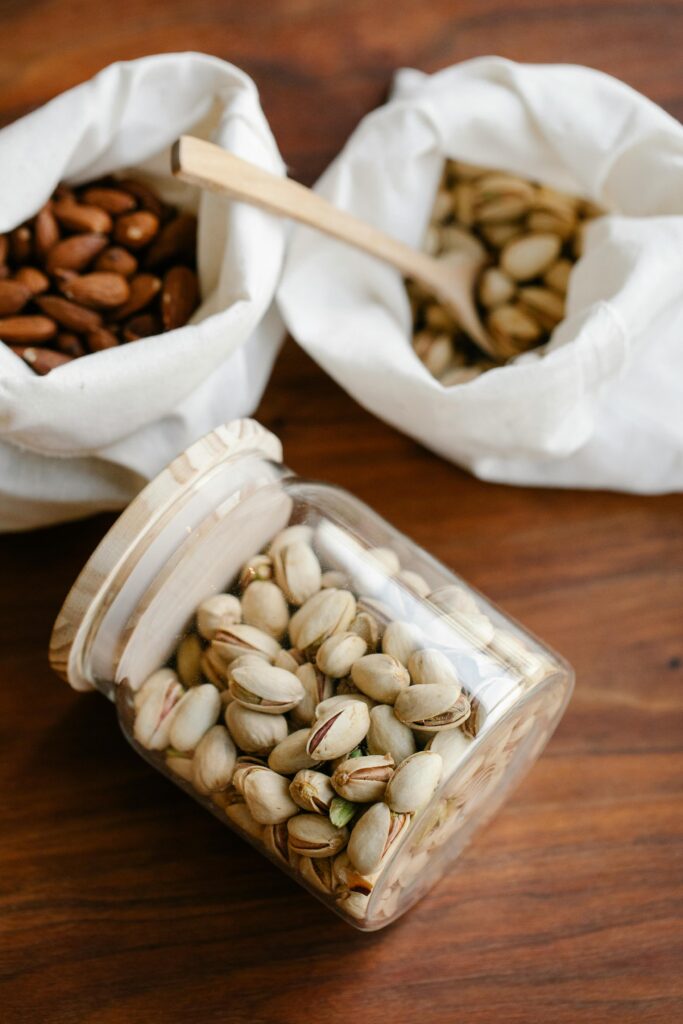
9.Dark Chocolate: In moderation, dark chocolate (with at least 70% cocoa) can be beneficial for heart health. It contains flavonoids that can improve blood vessel function, lower blood pressure, and enhance circulation. While indulging in dark chocolate can satisfy your sweet cravings, it’s important to keep portions in check to avoid excessive calorie intake. Enjoy it as a treat or use it in recipes to add a rich, chocolatey flavor.

10.Legumes: Beans, lentils, and chickpeas are excellent sources of protein and fiber, making them a filling addition to meals. They have been shown to lower cholesterol levels and stabilize blood sugar, which can positively affect blood pressure. Incorporating legumes into your diet is easy—add them to soups, salads, or make bean-based dips. They are versatile and can be used in a variety of cuisines, making them a staple for a heart-healthy diet.
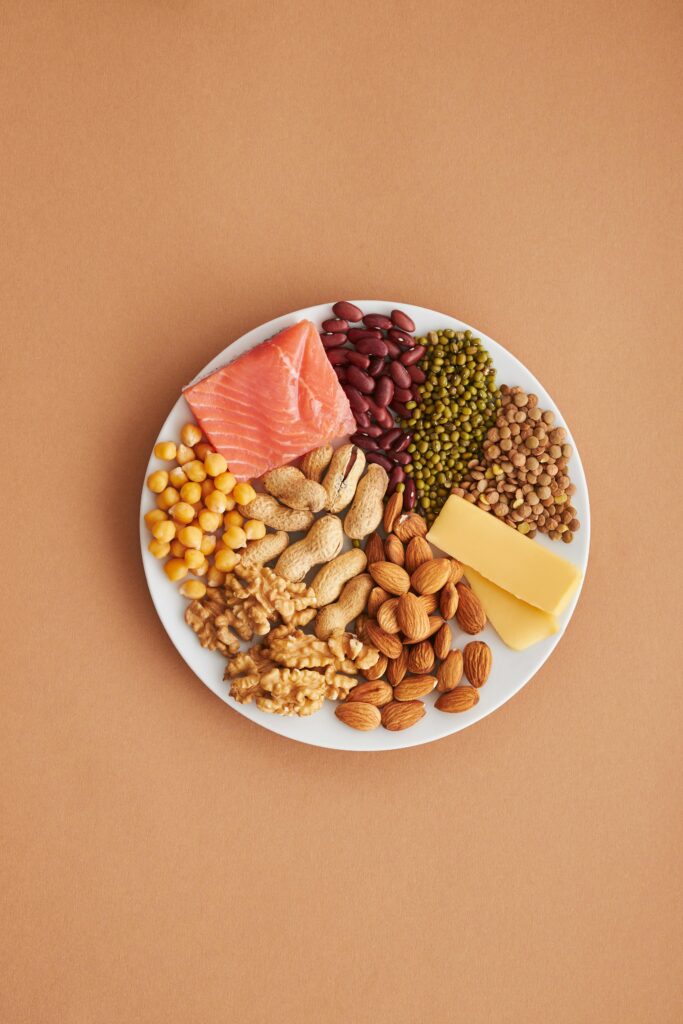
What food lowers blood pressure quickly?
No single food can quickly reduce blood pressure. However, a diet rich in potassium, magnesium, and fiber can help support healthy blood pressure over time. The DASH (Dietary Approaches to Stop Hypertension) diet is often recommended for those with high blood pressure or seeking to maintain optimal levels. This diet focuses on consuming fruits, vegetables, whole grains, and lean proteins, all of which contribute to better heart health.
Can drinking water lower blood pressure?
Drinking water may not lead to an immediate decrease in blood pressure, but staying well-hydrated is crucial for overall cardiovascular health. Proper hydration helps maintain blood volume and ensures blood vessels function properly. Drinking enough water also supports kidney function, which is important for blood pressure regulation. Thus, while it’s not a quick fix, maintaining hydration is essential for a heart-healthy lifestyle.
Do bananas lower blood pressure?
Bananas are high in potassium, which is vital for managing blood pressure. Although eating bananas alone won’t dramatically lower blood pressure, they do contribute to your daily potassium intake, helping to balance sodium levels in the body. If bananas aren’t your preference, other potassium-rich foods like sweet potatoes, spinach, and kiwifruit can be excellent alternatives. Including a variety of these foods can aid in overall blood pressure management.
What foods should you avoid if you have high blood pressure?
If you have high blood pressure, it’s best to limit or avoid foods high in sodium, added sugars, and saturated fats. Processed items, canned soups, salty snacks, and sugary drinks can significantly elevate blood pressure levels. Instead, choose fresh ingredients and lean meats, using herbs and spices for flavor instead of salt. Making these adjustments can help support healthier blood pressure levels.
Embracing a healthy diet along with lifestyle changes, such as regular exercise and stress management, can significantly lower blood pressure and reduce heart disease risk. Incorporating potassium-rich and nutrient-dense foods, as mentioned, can be beneficial. If you’re thinking about making significant dietary changes, consulting with a healthcare provider or registered dietitian can help create a personalized plan that meets your needs.